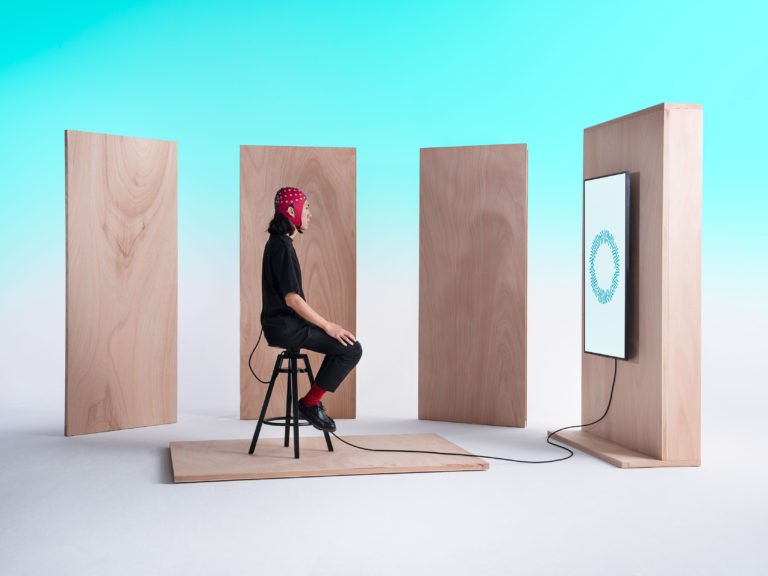Congratulations to our 2024 Graduates
With a transdisciplinary approach, our Postgraduate Programme in Design Research for Digital Innovation invites students to reflect on emerging technologies to create sustainable impact. They explore their potential and develop unprecedented uses in collaboration with designers, engineers and psychologists, while working on one of the lab’s ongoing research projects. We offer a big congratulations to our recent graduates, leaving the programme with a Masters of Advanced Studies, Andrea Pronzati and Danpeng Cai.
Praeludium by Andrea Pronzati
Praeludium offers a reinterpretation of the classical music listening experience. Using interactive and immersive spatial audio technologies, Praeludium aims to enhance engagement, especially among neophyte audiences. It transforms recorded performances into multi-sensory experiences by integrating audio-reactive visuals and dynamic lighting, thus underlining the characteristics of classical compositions.
By crafting an immersive ambience, Praeludium serves as a bridge between expert and new audiences, encouraging them to engage with classical music in novel and stimulating ways.
.


Advancing Neurofeedback in Tinnitus by Danpeng Cai
The multidisciplinary research project ANT – Advancing Neurofeedback in Tinnitus – aims to improve neurofeedback therapy for tinnitus. The design research work looked to establish a systematic process for the development of visual stimuli in this context. Through a series of iterative studies, this work aimed to optimise neurofeedback protocols, challenge traditional notions and oversights in the field, and develop comprehensive design guidelines.
The project, funded by the Swiss National Science Foundation (SNSF), integrates insights in design (EPFL+ECAL Lab), cognitive psychology (Bern Univeristy of Applied Sciences and University of Fribourg) and clinical neuroscience (University and University Hospital Zurich), paving the way for future advances in neurofeedback therapy.



